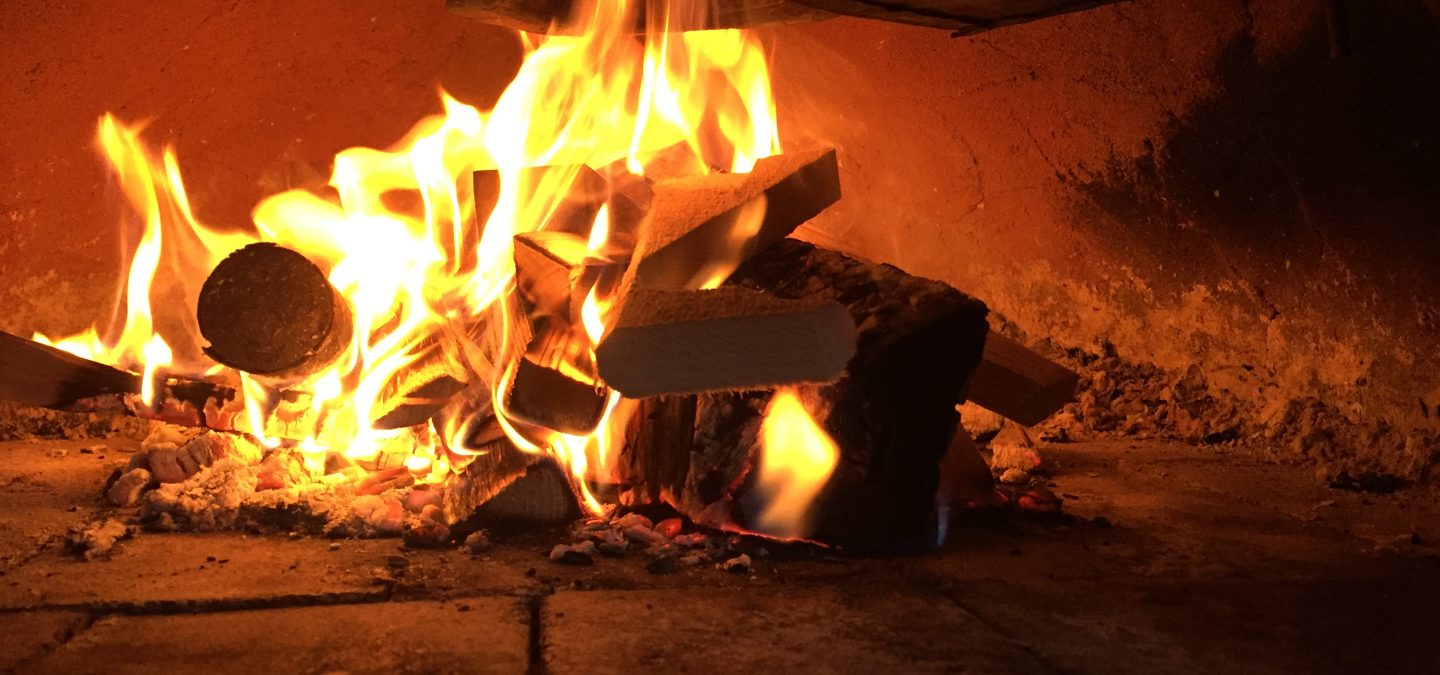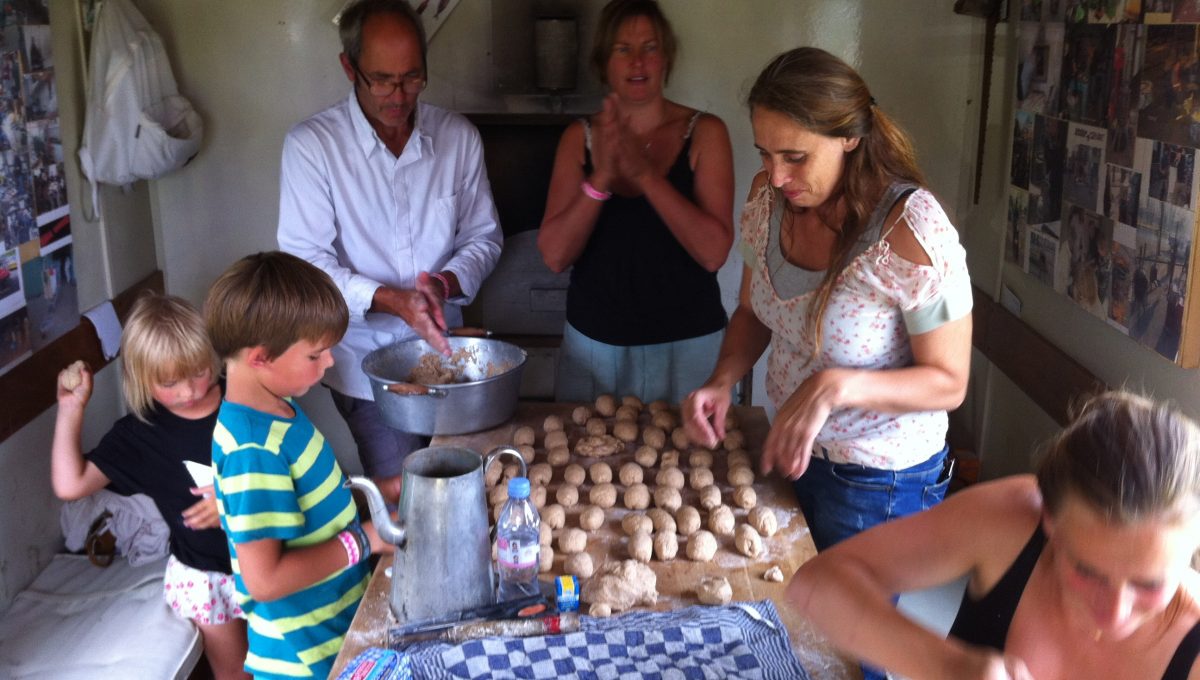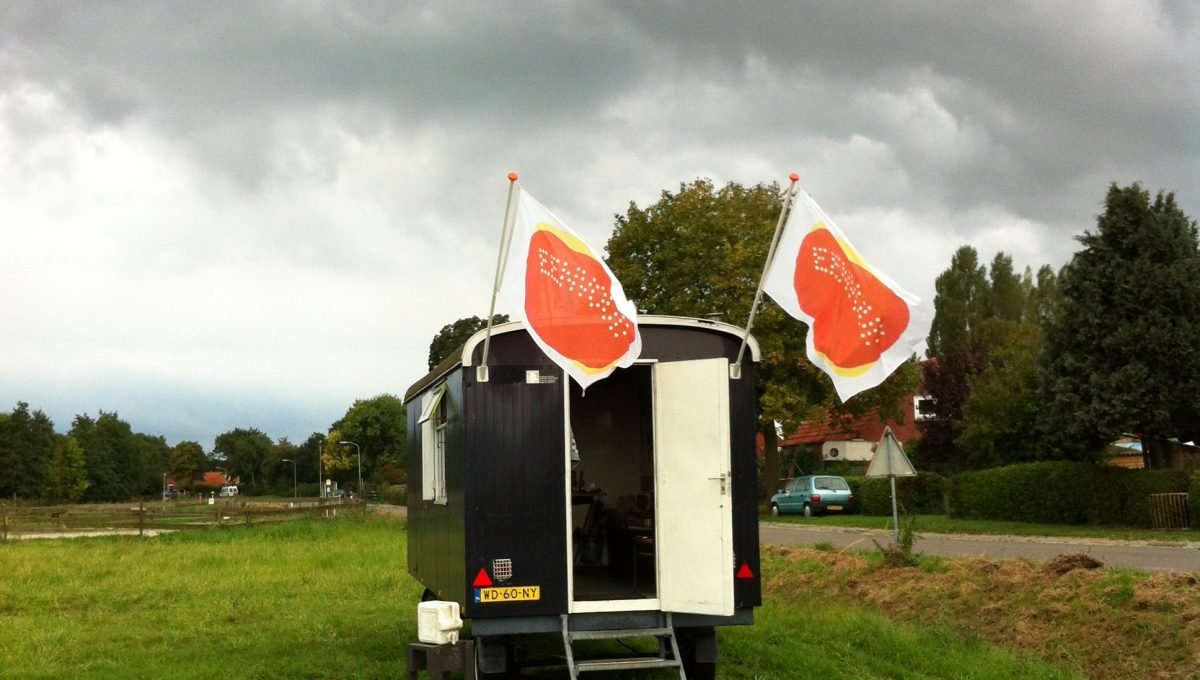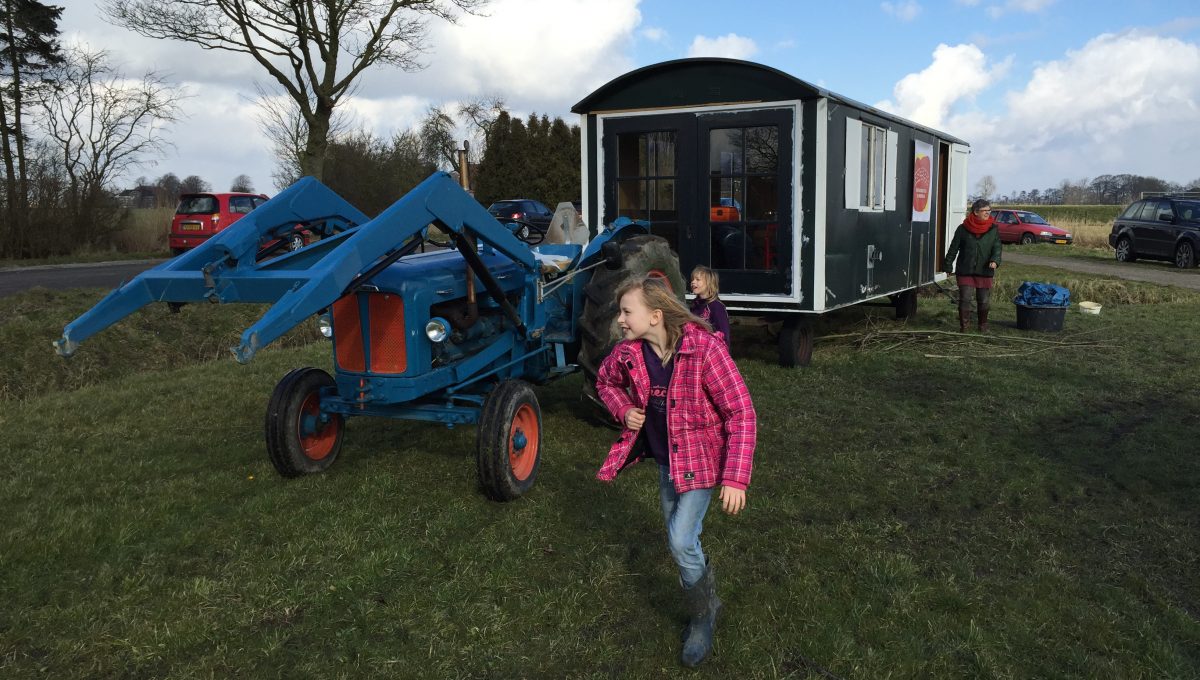
Keep up with our latest news and projects!

‘If I ever have trouble making ends meet, I’m going to become a baker,’ artist and social designer Peik Suyling always said. As an artist in the cultural sector, he had trouble making ends meet during the financial crisis. That’s what led him to start a bakery. He soon noticed that it was drawing people. The loss of work, money and security had created a need in people to share stories, experiences and solutions. And that’s how Bakery De Eenvoud (‘Simplicity’) came to see the light of day, a mobile bakery that serves as a place to ‘look for simplicity in complex issues’.
‘Bread symbolises simplicity because it consists merely of water, flour, yeast and salt, and it’s easy to make; it’s a simple process but shouldn’t be underestimated.’ That’s how Sander van der Ham explains the name and nature of the project. Van der Ham, affiliated to STIPO as an urban psychologist, was involved in De Eenvoud from the start. ‘We developed the concept together. Peik acted as baker and I was his helper, he says jokingly. ‘Actually that suited me, because I like to observe. We go to exciting places, such as disadvantaged and shrinking neighbourhoods. These are places dealing with extremely complex issues, such as providing care for each other where that is not a given or places where public servants are unable to reach people. We just show up and then see what happens.’
Bakery De Eenvoud consists of a blue construction trailer with a wood-fired clay oven. It can be towed by car to any desired location. The very first Bakery De Eenvoud was set up in Amsterdam. After that our bakeries appeared in a village in Groningen called Hongerige Wolf (‘Hungry Wolf’) and on the island of Vlieland. But Bakery De Eenvoud goes to many places, such as Wijk aan Zee, Rotterdam, Amersfoort, Amsterdam and Schiedam. The shelter with the oven is always placed in a public location. Piek and Sander go around the neighbourhood and hand out flyers and posters to notify residents.
‘The best is when you arrive somewhere early, as is fitting for a baker,’ Van der Ham says with a sparkle in his eyes. ‘The wood-fired clay oven is shaped like a dome. You have to fire it for more than two hours before it reaches the right temperature. In the meantime, you open the door and people can come inside. No, we don’t have any lettering. We do put a chalkboard outside though. And of course people see the chimney on the roof and smell the burning wood and later the bread.’

Once the trailer is there, everyone’s welcome. ‘We try to create a good atmosphere. People can help us or just have a look around or have a chat. Everything’s allowed, no one is obliged to do anything,’ according to Van der Ham. In the Groningen hamlet Hongerige Wolf, he and Suyling were already out and about at five in the morning. By nine o’clock there still wasn’t a single visitor in sight. ‘But at ten after nine the place was full,’ says Van der Ham, smiling. ‘Almost the entire village came by. It’s a village with seventy houses, but it turned out there were people there who didn’t know, after twenty years, what their neighbour did. Imagine what that’s like in the city.’
The reason for descending on Hongerige Wolf at the north-eastern tip of Groningen was that it’s situated in a shrinking region. ‘But that subject didn’t appeal to these people at all. “Shrinking?” That’s not happening at all,’ they said. What did concern them, though, was what it would be like to become old there. Will we be lonelier if there are fewer services? There were animated discussions about that. And it ultimately meant that the village had its own bakery: a meeting place for residents.’
The visitors’ behaviour differed considerably. ‘Older white men in particular initially sat there passively, with their arms crossed. Moroccan women, on other hand, took everything off your hands immediately. Sometimes they say that they recognise the clay oven from Morocco, where people always chatted with each other. A lot of them still bake their own bread.’
Usually, the atmosphere gradually opens up and more people get involved in the conversation. Those who help out automatically meet strangers while kneading the dough or waiting for the bread to rise and bake. Often, the conversations are about the neighbourhood and the needs and wishes of those present.
 Bakery De Eenvoud
Bakery De Eenvoud
 Bakery De Eenvoud
Bakery De Eenvoud
Why does De Eenvoud work so well? ‘It’s a completely different approach than having a public servant go to a neighbourhood and ask people what their concerns are,’ says Van der Ham. ‘In such cases, their approach is: we have a problem, what are we going to do about it? That often makes people go into denial. Or they become preoccupied about a problem that’s hardly there. People are relaxed while baking bread. Kneading the dough in particular takes them out of their comfort zone and results in conversations that are different than their usual ones. They talk about what they can do together, how they can shape their future.’
Sometimes there’s a theme. For example, De Eenvoud headed for the heart of Amsterdam in 2016 on the Dag van de Mantelzorg (‘Day of Caregiving’). The municipality had looked into it and found that 20% of the 7,000 caregivers in the city centre were overworked, but that only 6% were asking for help. ‘The professionals said: they simply don’t approach us. But more than 150 people came to us that day, including overworked caregivers. We put some of them in touch with welfare institutions. We worked with a caregiving centre called Markant. After that, a meeting was held one evening where ideas were thrown into the group, such as a 24-hour helpline. It shows that you can expand your network simply by going to a neighbourhood.’
As temporary as De Eenvoud’s stays always are, they regularly generate lasting change. That happened on Vlieland, where there was a mobile oven that was placed on a variety of locations on the island by the forestry commission. In Amersfoort, an ancient oven from an old courtyard with almshouses was restored to reinstate the tradition of baking bread for the neighbourhood. And in Hongerige Wolf, the residents built an oven made of Groningen clay, which was donated by a brick factory, and placed it in a mobile shed. They regularly hold baking events on Sundays, and they also fire the oven during their annual festival. Just like De Eenvoud, they journey into the wide world, though they limit themselves to the surrounding villages because they move their shed by tractor.
Interested? Join The City At Eye Level and share your story!
Discover moreA social form of placemaking, that’s what Van der Ham calls Bakery De Eenvoud. And one that’s easy to set up. Because De Eenvoud doesn’t have to comply with building or environmental regulations. Indeed, Van der Ham highly recommends it to municipal administrations and welfare institutions. ‘Just go with Bakery De Eenvoud and stand in a neighbourhood for a few hours a month to bake bread, things are guaranteed to happen. It’s similar to organising a placegame, you make new connections, which creates a foundation that the neighbourhood’s residents can build on to achieve lasting change. The strength of the bakery is that it’s an easy way to link up formal parties and informal networks in neighbourhoods and villages that you can connect to each other.’